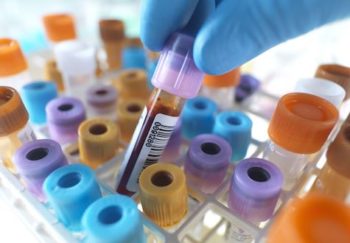It’s an amazing fact. More than 18 million people in the United States are cancer survivors. Because of advances in cancer research, they’re living with and beyond their disease. May is National Cancer Research Month. We shine a spotlight on exciting cancer research at UVA Health. Scientists have developed a new way to sort out the patients who will benefit from a common cancer drug.
So if you or someone you love is facing cancer, here’s what you need to know.
Matching Kinase Inhibitors to the Right Cancer Patient
Kinase inhibitors are widely used cancer drugs to treat some types of blood, breast, lung, and other cancers.
They can be hugely effective for the right patients. But they don’t work for everyone. And sometimes, they're not given to patients who could benefit.
UVA Health cancer researchers have found a way to solve this problem. They’ve created an algorithm to pinpoint the patients who will benefit from these drugs.
An algorithm is like a detailed recipe that tells a computer what steps to take to solve a problem. “We are really excited about this algorithm,” says researcher Kristen M. Naegle, PhD. She’s with the UVA Department of Biomedical Engineering.
“Combining this approach with existing biomarkers for cancer diagnosis may help us to better tailor therapies, and design new combination therapies. And we can anticipate how patients will respond to treatment.”
Cancer Research Uncovers Key Information for Better Care
Naegle and her colleagues set out to overcome the limitations of existing methods used to identify patients who may benefit from kinase inhibitors. These drugs block a type of enzyme called a kinase. And certain kinases are more active in some types of cancer cells. So blocking them may help keep the cancer cells from growing.
UVA Health’s new approach doesn't need difficult-to-obtain and sometimes unreliable measurements. Instead, it can predict key information based on other available data.
With this information, the algorithm produces a specific “KSTAR score.” Doctors can use these scores to find which patients will respond to kinase inhibitors. In testing their new algorithm, Naegle and her collaborators found that it worked well across different tissue types. This suggests it is useful for many types of cancer.
KSTAR Score Helps Guide Diagnosis
And as an added benefit, KSTAR can serve as a diagnostic tool.
For example, the cancer research found that KSTAR was able to determine that a patient with breast cancer was not HER2 positive, as doctors had previously believed.
HER2-positive breast cancers can benefit from HER2-targeted kinase inhibition. But HER2-negative tumors will not respond. (Learn what these positives and negatives mean.)
Also, the researchers find that about 20% of patients identified as HER2-negative with current diagnostic tools actually have HER2 signatures. So this means they could benefit from HER2-targeted treatment – a treatment not currently offered to them.
This type of information can be invaluable as doctors and patients discuss treatment options. And to help advance care across the globe, the cancer research team made their new algorithm freely available.
Cancer Research for Better Care
Through clinical trials, you can help advance cancer treatment.
Explore Cool Cancer Research
Naegle and her collaborators published their findings in the journal Nature Communications. A grant from the National Cancer Institute supported their research. This type of research is one of the many reasons we were named Virginia's first Comprehensive Cancer Center.
“We are collaborating and working with teams of researchers across a range of cancers,” Naegle says. “We hope that we'll be able to help better identify the right treatment for the right patient at the right time.”


